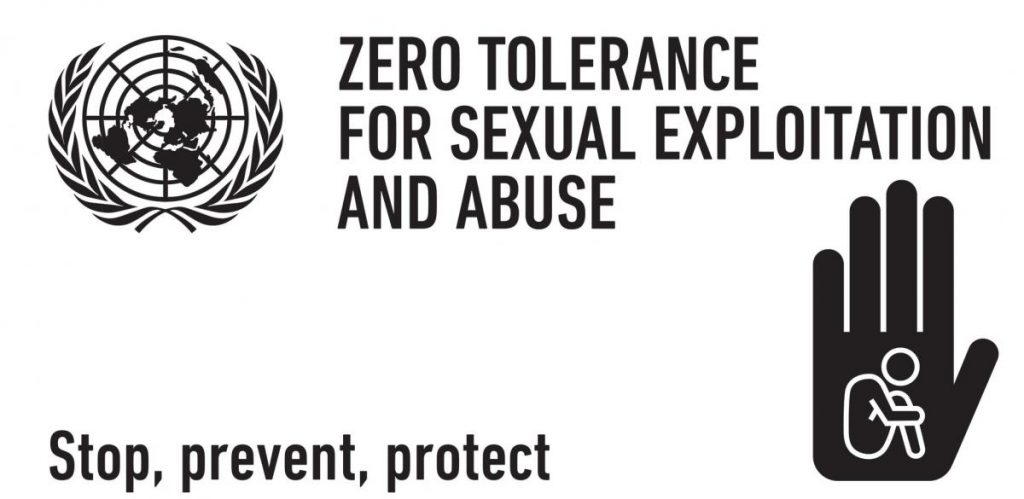17.11.2020.
The reason for the adoption of this important document as a guidelines for the prevention of sexual exploitation and abuse by humanitarian workers are the cruel events that took place in previous years. The events affected humanitarian protection beneficiars, who were sexually harassed or abused by humanitarian workers. In previous years, the humanitarian social narrative had witnessed several scandals. Only some of them were: the case of refugee children in Guinea (2002), Liberia and Sierra Leone (2001)[1], who were exposed to sexual abuse and exploitation by employees of domestic and international NGOs, UNHCR and others UN bodies. In 2010, there was a scandal caused by an employee of the international non-governmental organization Oxfam[2], who conditioned the beneficiary of help with sexual services in exchange for money and a donation. Similar situations occurred later in DR Congo (from 2018 to 2020) and so on. As more talk about this topic began in the public, testimonies from the past began to emerge, including similar situations during the armed conflicts in the former Yugoslavia – in Bosnia and Herzegovina and Kosovo.
In order to prevent and resolve cases of sexual exploitation and gender-based violence among those involved in the work of the UN, the UN Secretary General, taking into account „Investigation into sexual exploitation of refugees by aid workers in West Africa: Note by the Secretary-General A/57/465“[3], published the document: Secretary-General’s Bulletin, Special measures for protection from sexual exploitation and sexual abuse. The document was prepared and adopted in consultation with various UN teams and programs around the world, in response to previous scandals in the provision of humanitarian protection, when not so rare cases of sexual exploitation of users by humanitarian workers in exchange for humanitarian protection, assistance and the like.
This document contains specific measures and guidelines aimed at protection against sexual exploitation and gender-based violence and it applies to all UN staff, including administrative bodies, programs and executive partners of UN programs.
The first part of this document first defines the term sexual exploitation and abuse, where the term sexual exploitation means any sexual act or attempt to abuse a position by abusing and using the existence of a position of vulnerability, differential force or previously acquired trust for sexual purposes, including but not limited to limiting oneself to monetary giving, better position and the like, in exchange for sexual service.
The document discusses the key role of those involved in UN projects in controlling and banning sexual exploitation and sexual abuse, where special attention should be make to the care of women and children, in accordance with Chapter 7 of the Secretary-General’s bulletin ST / SGB / 1999/13, entitled: Observance by United Nations forces of international humanitarian law. The document speaks of every form of exploitation and sexual abuse as a serious act of violating the norms of international law and standards, those that are unequivocally unacceptable and will be severely sanctioned as behavior when it comes to operations and actions of employees on UN programs.
The document especially emphasizes the prohibition of sexual abuse and exploitation of children, even in situations when the person did not know about the minorhood of the victim. The exchange of money, employment, goods or services for sex, including so-called exploitative behavior, is expressly prohibited on UN programs. In order to maintain the professional quality of service delivery and the credibility of the work, the document clearly emphasizes that such actions between staff and users are discouraged, specifying the entire network of protection and steps in prevention and treatment when such situations occur.
The document pays special attention to the duties of heads of departments, missions and offices in UN departments. Defines the responsibility of responsible persons, rules and procedures for dealing with cases of improper conduct of staff. In these situations, the document envisages a clear and unambiguous determination of key points that in such situations should be contacted and reported irregularities in work and violations of business ethics.
In the sixth section, the document explains the role of state bodies in such situations, as well as the ways in which the UN will inform its executive partners, relevant third parties and officials about these standards of conduct, written commitments, preventive measures, further improvement of standards and business policies.
The UN documentary that brings real stories and testimonies of victims, ie sexual exploitation of aid beneficiaries by humanitarian workers in the field are available at the following link[4]. The film was shown around the world, in order to raise people’s awareness of this topic with the intention of emphasizing prevention as the most important, and with the goal of preventing such and similar situations in humanitarian protection from happening again.
[1] More on: https://www.thenewhumanitarian.org/news/2002/02/27/reports-child-refugees-sexually-exploited-shock-annan
[2] More on: https://www.bbc.com/news/uk-43112200
[3] Document: https://www.unhcr.org/protection/operations/405ac6614/secretary-generals-bulletin-special-measures-protection-sexual-exploitation.html
[4] https://www.youtube.com/watch?v=NfMKMCYFgPo&feature=emb_title
